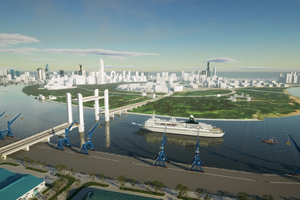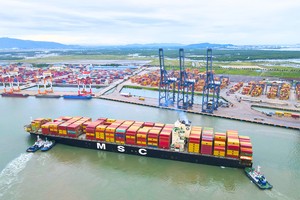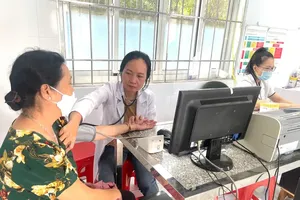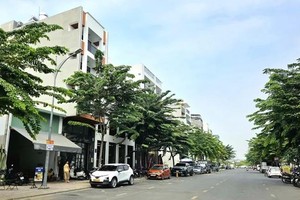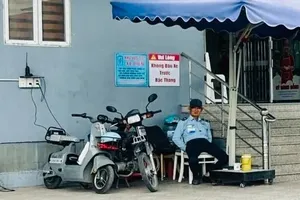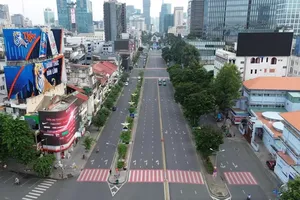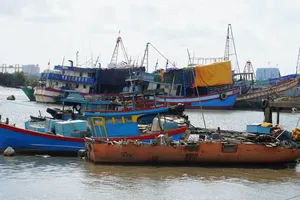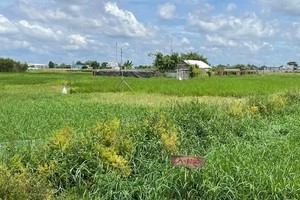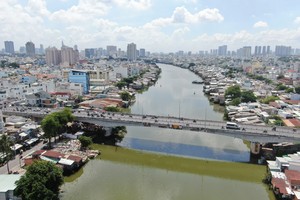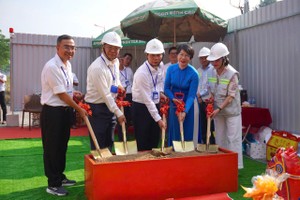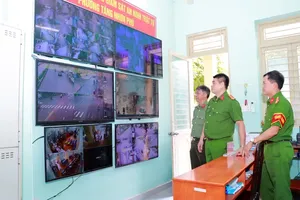
Tran Quang Lam, deputy director of the department, said in the first 10 months of the year, the water bus Route No 1 provided services to 276,000 passengers, or about 780 passengers per day.
The number of services provided by the water buses on Route No 1 rose from 18 in the first and second quarters to 26 in the third and fourth quarters.
The time periods from 8:30am-11am and 3pm-5pm saw the most passengers.
Under the city water bus plan approved in 2015, the water bus Route No 1, which is 10.8km long, runs through nine wharves from Bach Dang Wharf on Sai Gon River in District 1, through Thanh Da Canal to the Sai Gon River in Binh Thanh district, to the wharf in Linh Trung ward in Thu Duc district.
Wharves include Bach Dang in District 1, Binh An in District 2, Thanh Da in Binh Thanh district, and Hiep Binh Chanh and Linh Dong in Thu Duc district.
Another four wharves, Sai Gon, Tam Vu, Thao Dien and Binh Trieu, are under construction and will open in 2019.
Four water buses, which can carry 75 passengers each, operate, with another bus expected to be added next year, according to Lam.
Along with connections between water buses and road networks, city buses have been set up to carry passengers to Bach Dang, Binh An, Thanh Da and Hiep Binh Chanh, while another bus stop has opened 800 metres from Linh Dong wharf.
The Centre for Public Transport Management under the HCM City Department of Transport also uses mini-buses to carry passengers to Linh Dong wharf.
Thuong Nhat Co., the investor of Water Bus Route No 1, has unveiled a plan to use electric cars to carry passengers from Bach Dang wharf to hotels and shopping centres in downtown HCM City.
“Water bus services operate not only in the city but around the country. This means of transportation will contribute to the development of the city’s public passenger transportation and waterway tourism,” Lam said.
To improve water tourism, the city’s transport department will dredge narrow passages of rivers and canals, check urban development in areas along Sai Gon River, announce technical criteria for construction of inland waterway ports, and make plans to mobilise investments from the private sector for waterway passenger transport.
In the near future, the city’s transportation department will combine waterway passenger transport services with waterway tourism.
The routes will include a 15km waterway route that links Bach Dang wharf-Sai Gon River-Rach Chiec-Dong Nai River; the 16km Sai Gon Sai Gon River-Te Canal-Doi Canal; the 14km Sai Gon River-Mui Den Do-Nha Be River; the 17km Sai Gon River-Vam Thuat River-An Loc bridge; and the 23km Sai Gon River-Te Canal-On Lom Canal-Rach Dia-Phu Xuan River-Soai Rap River.
The 32km route from Bach Dang in HCM City to Thu Dau Mot in Binh Duong province is expected to open before April 30, while the Bach Dang-Con Dao Island in Ba Ria-Vung Tau province is scheduled to start in March.
